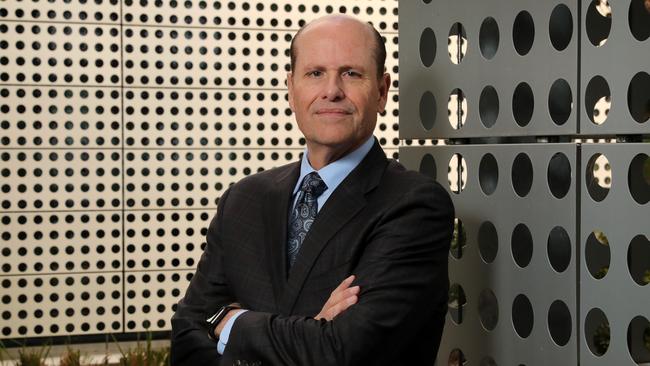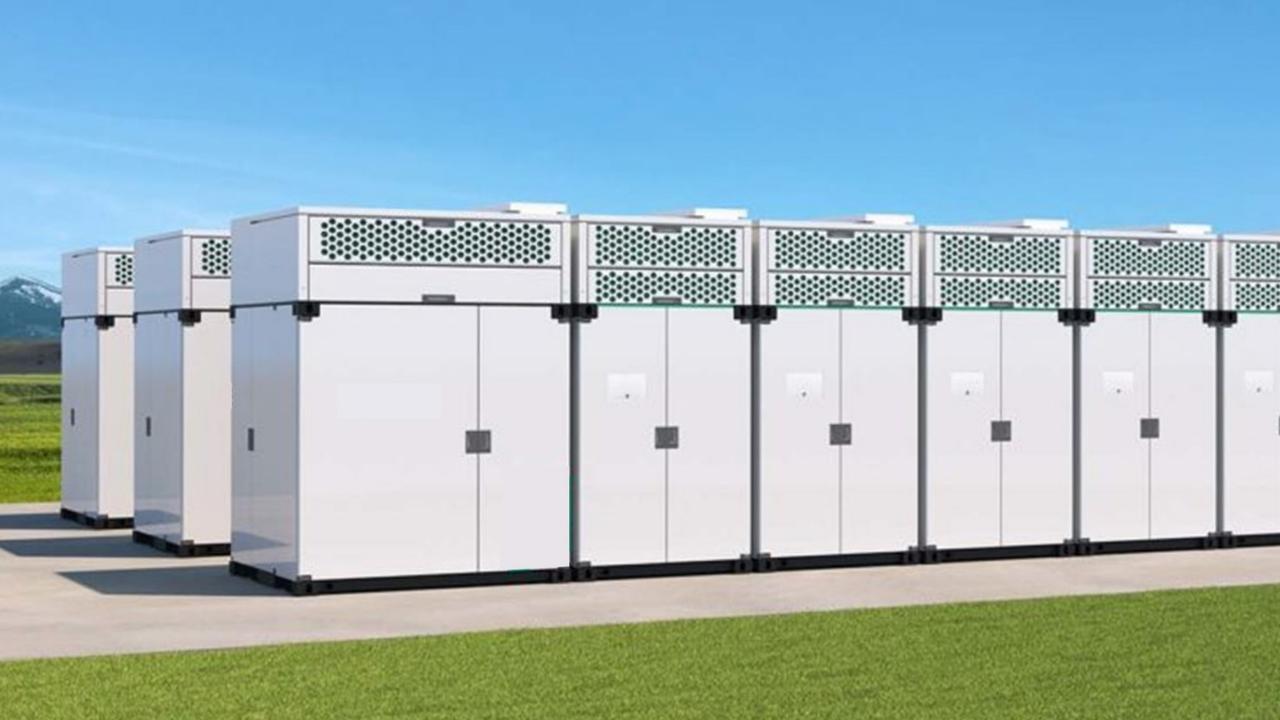CSL challenges CBA as shares pass $300
Australia’s biggest health company is poised to become the biggest company on the ASX after its shares passed the $300 mark.

Australia’s biggest health company, CSL, is poised to overtake another former government-owned business, Commonwealth Bank, to become the biggest company on the ASX after its shares passed the $300 mark.
Analysts are now tipping the company — which began as the Commonwealth Serum Laboratories in 1916 before being floated on the ASX in 1994 — to hit $320 or even $350 a share this year.
The bullish forecast comes as CSL invests about $1bn a year in drug trials to build its pipeline of future blockbusters.
Already, CSL’s market capitalisation of more than $135bn surpasses National Australia Bank, ANZ and Transurban.
It is ahead of BHP’s Australian-listed shares of $120bn and within reach of CBA’s $148bn to take top spot on the ASX.
Chief executive Paul Perreault was in San Francisco this week, talking up the company at the JPMorgan Healthcare Conference, which has attracted about 35,000 health specialists and investors from around the globe.
CSL’s success comes down to a single sentence Mr Perreault uttered at the conference: “We continue to deliver.”
Mr Perreault was referring to the five new products CSL launched in the 24-month period to March 2018.
He said they were launched in the US and the top five European countries first and would now be launched in the other countries CSL services.
“A product launch is not a one-off event,” Mr Perreault said.
‘You launch a product and then you have to continue launching the product.
“It’s been very rare in our careers where we have products that actually sell themselves.
“It takes a lot of commercial expertise and effort that our teams have delivered.
“These launches are continuing and that is continuing to fuel growth for us as an organisation.”
However, Mr Perreault said the main growth driver was immunoglobulins or antibodies.
Immunoglobulin therapies accounted for 40 per cent of CSL’s $US8.5bn ($12.3bn) revenue in 2019.
Mr Perreault said demand for immunoglobulin therapies was continuing to grow amid a tight plasma market, prompting CSL to open 30 new plasma collection centres last year — taking the total number of centres in its network to more than 230. And this year it plans to open another 40 centres to keep up with the strong demand.
“The reason it (plasma supply) is tight is because it’s hard to expand and open new centres,” Mr Perreault said.
“The United States is really the mine for plasma across most countries in the world.
“Many countries are trying to be self-sufficient in plasma, but they find it very difficult, with volunteer donations of whole blood, to maintain the amount of precious raw material that the donors supply.”
CSL is the No 1 company in the plasma market, which is worth about $US30bn.
Mr Perreault said the company had taken a disciplined approach to expansion.
“In any new market that we go into, our job is to make sure that we continue to supply those markets.
“We don’t want to be in and out of markets.
“As a leader in IG (immunoglobulin) globally, it’s our responsibility to make sure that markets that we enter continue to have supply for patients.”
Credit Suisse increased its price target for CSL from $305 to $320 and maintained its outperform rating.
CSL yesterday closed at $300.89, up 1.1 per cent.
“In our view, the current market dynamics and CSL’s market leading position in immunoglobulin are supportive of 11 per cent earnings growth in financial year 2020 and 2022 per cent earnings growth in financial year 2021,” analyst Gretel Janu said in a note to investors.
“It is likely management will raise guidance at the first half 2020 results.”
Meanwhile, Citi analyst John Deakin-Bell said: “While the valuation looks full, earnings risk remains to the upside given the strong demand dynamics in the plasma market and superior plasma collection position of CSL”.
Morgan Stanley analysts said last week CSL’s share price could top $350 if their bull case for the stock played out.
If the company hit that price, its market capitalisation would be about $160bn, easily exceeding Commonwealth Bank’s market value.



